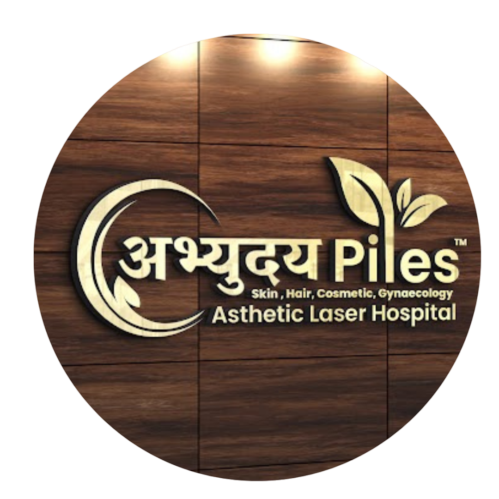Understanding the Link Between Lifestyle and Piles
Many people struggle with piles, also known as hemorrhoids, without realizing that certain every day habits can make the condition worse. From poor dietary choices to inadequate hydration, small mistakes can lead to recurring flare-ups and discomfort. While medical treatment helps, making the right lifestyle and dietary changes is essential for long-term relief. This blog will explore mistakes that worsen piles and how to prevent them by making better food and lifestyle choices.
1. Consuming Low-Fiber Foods
A diet lacking in fiber is one of the biggest mistakes that worsen piles. Fiber helps soften stools and promotes easy bowel movements, reducing strain on the rectal veins.
Foods to Avoid:
- Processed foods like white bread, pastries, and fast food
- Dairy products such as cheese, whole milk, and ice cream
- Red meat and fried foods
Foods to Eat:
- Whole grains like oats, brown rice, and quinoa
- Fresh fruits and vegetables, especially leafy greens
- Legumes such as lentils, beans, and chickpeas
2. Drinking Insufficient Water
Dehydration can lead to hard stools, making bowel movements painful and increasing the risk of hemorrhoids. Lack of proper hydration can worsen symptoms and cause further irritation.
How to Improve Hydration:
- Drink at least 8–10 glasses of water daily
- Include hydrating foods like cucumbers, watermelon, and oranges
- Reduce caffeine and alcohol intake, as they contribute to dehydration
3. Eating Spicy and Acidic Foods
Spicy and acidic foods can irritate the digestive system and worsen the inflammation of piles, causing discomfort and increased pain.
Foods to Avoid:
- Spicy dishes with excessive chili, pepper, or hot sauces
- Acidic foods like citrus fruits, tomatoes, and vinegar-based products
- Pickles and fermented foods that may cause irritation
Foods to Eat:
- Cooling foods like yogurt, buttermilk, and coconut water
- Mildly spiced dishes with turmeric and ginger (which have anti-inflammatory properties)
- Boiled or steamed vegetables to soothe digestion
4. Excessive Consumption of Processed and Sugary Foods
Refined sugar and highly processed foods can cause constipation and disrupt gut health, leading to increased pressure on the rectal veins.
Foods to Avoid:
- Sugary cereals, candies, and pastries
- Packaged snacks like chips and crackers
- Carbonated and sugary beverages
Foods to Eat:
- Natural sweeteners like honey or jaggery in moderation
- Fresh fruits like apples, pears, and berries
- Nuts and seeds for healthy fats and fiber
5. Overlooking Probiotic-Rich Foods
Gut health plays a vital role in digestion and preventing constipation. Probiotics help balance gut bacteria and improve bowel movements, reducing the chances of piles recurrence.
Best Probiotic Foods:
- Yogurt with live cultures
- Fermented foods like kimchi and sauerkraut
- Kefir and buttermilk
6. Relying Too Much on Laxatives
Many people use laxatives to relieve constipation, but excessive reliance can weaken natural bowel movements and cause dependency, worsening piles in the long run.
How to Maintain Healthy Bowel Movements:
- Increase fiber and water intake naturally instead of using laxatives
- Eat prunes and flaxseeds for mild, natural laxative effects
- Exercise regularly to stimulate digestion
7. Consuming Excessive Red Meat and Fatty Foods
Fatty meats and deep-fried foods take longer to digest and lack fiber, leading to constipation and increased strain during bowel movements.
Foods to Avoid:
- Greasy, fried meats and processed sausages
- Deep-fried foods and creamy sauces
- Butter, margarine, and heavy cream
Healthier Alternatives:
- Lean protein sources like fish and skinless poultry
- Plant-based protein like tofu and legumes
- Healthy fats from avocados, olive oil, and nuts
Final Thoughts:
Managing piles is not just about treatments but also about avoiding mistakes that worsen piles. Your diet plays a crucial role in either aggravating or relieving symptoms. By making better food choices, staying hydrated, and maintaining a balanced lifestyle, you can reduce discomfort and prevent future flare-ups. If symptoms persist, it’s always best to consult a doctor for personalized advice and treatment options.
For expert guidance and advanced treatment, visit Abhyudaya Piles Ayurveda and Laser Hospital, led by Dr. Praveen Sahave. To know more about us, visit our website Abhyudaya Piles Ayurveda and Laser Hospital for more understanding.

